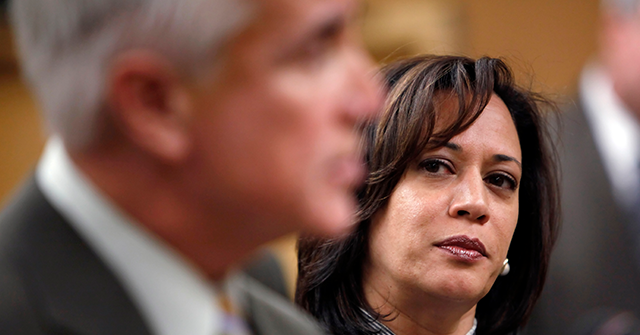Vice President Kamala Harris has been vocal about her dedication to preserving the integrity of American elections, particularly during her tenure as a U.S. senator. Harris frequently referenced her role in scrutinizing Russian interference in the 2016 elections and has consistently hailed free and fair elections as cornerstones of democracy. She has touted her extensive experience as a career prosecutor as evidence of her commitment to clean elections. However, despite these claims, her actions during critical moments have raised questions about her genuine dedication to electoral integrity, particularly in relation to alleged election manipulation connected to her close political allies, including individuals tied to Chinese influence operations.
In 2011, as Ed Lee campaigned for mayor of San Francisco, allegations surfaced regarding campaign finance violations, election tampering, and voter manipulation involving Lee’s supporters, some of whom were suspected of collaborating with Chinese government operatives. Harris, who had been California’s Attorney General at the time, opted not to investigate these allegations. The situation was complicated by the fact that many of Lee’s supporters were significant contributors to Harris’s political campaigns both before and after the exposure of the alleged scheme. This decision highlights a pattern of political intertwined relationships, drawing criticism and concerns regarding her commitment to electoral integrity amid significant conflicts of interest.
The scandal began unfolding in the wake of Gavin Newsom’s election as Lieutenant Governor of California in 2010. Following this, Ed Lee, initially appointed as interim mayor, was pushed to run for the position due to a campaign orchestrated by a group known as Progress for All, led by suspected Chinese operative Bai Lan, known in San Francisco as Rose Pak. Pak has a history of being investigated for her ties to the Chinese Communist Party (CCP) and was closely allied with Willie Brown, a prominent figure in San Francisco politics and Harris’s former mentor. Progress for All managed to circumvent campaign finance limits, funneling significant funds into Lee’s campaign, triggering investigations aimed at uncovering the potential illicit activity behind the operation.
As the campaign generated more scrutiny, George Gascón, appointed district attorney, faced accusations of conflict of interest that could hinder an investigation into Lee’s campaign. Ultimately, the case was referred to Harris’s office, which, rather than pursuing the matter, returned it to Gascón. This led to the closure of the investigation without delving into the serious allegations of electoral misconduct. Notably, Kamala Harris herself had received substantial contributions from associates of Pak, drawing further questions regarding her impartiality and willingness to act against potential electoral corruption threatening her close allies.
The dismissal of this investigation had broader implications, particularly as evidence later emerged of pro-Lee operatives engaged in questionable practices during the election, such as manipulating absentee ballots and instructing elderly voters on whom to vote for. These actions, which are serious electoral violations, were brushed aside by Harris and Gascón. Their failure to confront the corruption linked with their political networks signifies a glaring inconsistency with Harris’s public stance on election integrity. Compounding this, after the investigation ceased, it was revealed that Rose Pak had strong connections to intelligence operations aimed at influencing foreign politics, effectively undermining the very electoral environment Kamala Harris professed to protect.
Despite her inaction regarding the Lee electioneering, Harris’s office demonstrated a stark contrast in its response to other electoral issues. Soon after the Progress for All case was closed, Harris aggressively pursued allegations against a conservative organization for campaign finance violations, prioritizing documentation and evidence collection ahead of an election. Furthermore, in a separate incident involving voter intimidation by antagonistic political players, Harris mobilized staffers to monitor polling places, illustrating a selective approach to allegations of electoral misconduct that appeared to align with her political affiliations.
Ultimately, Harris’s choices regarding the investigations tied to Ed Lee’s campaign, alongside her proactive responses to rival-associated allegations, create a complex portrait of her political motivations. Criticism of her conduct during this critical juncture raises questions about the veracity of her claims concerning her commitment to electoral safeguards and appears to reflect a broader trend of political maneuvering that weighs personal and political relationships over the integrity of democratic processes. As she continues to navigate her role as Vice President, these unveiling facts surrounding her past actions remind us of the critical importance of transparency and accountability in upholding the values of democracy she espouses.

